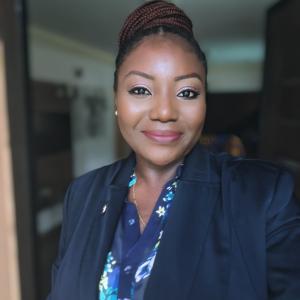UN Agencies Weekly Highlights - 6th October- 10th October 2025
19 October 2025
Weekly Highlights
UNDP
Vice President Juldeh Jalloh leads stakeholder engagement on the transition of the SLP into a service in Port Loko.
Sierra Leone’s Vice President, Dr. Mohamed Juldeh Jalloh, on Friday launched regional stakeholder consultations on the police reform, starting in Port Loko, North-West Region. The initiative marks the beginning of a national dialogue on the transition of the Sierra Leone Police (SLP) Force into a Police Service.
Addressing participants, Dr. Jalloh, who is the Chair of the Police Council emphasised that the consultations aim to ensure an inclusive, citizen-driven process. He said, “This transition is about building a modern, professional, and community-centered Police Service that serves and protects everyone,” he said. “We are strengthening police-community collaboration, enhancing partnerships, and promoting accountability and professional standards within the institution.”
Inspector General of Police (IGP) William Fayia Sellu highlighted that the transition builds on earlier discussions that have now gained renewed momentum. “We are reviewing the Police Act of 1964 and the Disciplinary Regulations of 2001 to align them with modern policing standards,” he noted. “This is about transforming mindsets and deepening trust between the police and the people.”
Representing the United Nations Development Programme (UNDP), Madam Mabulara Tsuene reaffirmed the organization’s strong partnership with the Sierra Leone Police and called on citizens to actively engage in the transition process. She urged the public to “make their voices heard during the consultations,” noting that inclusive participation is vital to shaping a Police Service that truly reflects the needs and aspirations of the people.
The event attracted wide participation from regional Minister, Paramount Chiefs, local authorities, Local Police Partnership Board, students, and residents.
RCO
UNCT deepens commitment to gender equality through strategic gender-equality scorecard briefing.
In a decisive move to strengthen gender mainstreaming across the United Nations system in Sierra Leone, UN Resident Coordinator Seraphine Wakana convened a high-level UNCT-SWAP Gender Equality Briefing, bringing together representatives from at UN Country Team (UNCT) and members of the Inter-Agency Task Team (IAT) and Gender Theme Group (GTG).
The briefing served as a platform to deepen collective understanding of gender equality principles and accelerate the integration of gender-responsive strategies across all UN programming in the country. It aligns with the UN System-Wide Action Plan (SWAP) on Gender Equality and the Empowerment of Women, a global framework designed to hold UN entities accountable for progress on gender parity.
“Gender equality is not a standalone goal, it is a cross-cutting imperative that must shape every aspect of our work,” said RC, emphasising the need for coordinated action and shared accountability.
The session highlighted key challenges and opportunities in advancing Sustainable Development Goal 5 (SDG 5), which calls for achieving gender equality and empowering all women and girls. Participants explored ways to strengthen data collection, improve gender budgeting, and ensure that program design and implementation reflect the lived realities of women and marginalised groups in Sierra Leone.
The briefing also underscored the importance of inter-agency collaboration in driving systemic change. By fostering dialogue among diverse UN entities, the session created space for sharing best practices, identifying gaps, and building a unified approach to gender equality. Participants reaffirmed their commitment to embedding gender perspectives into policy formulation, program delivery, and monitoring frameworks.
UNFPA
Advancing the Power of Data for sustainable development.
On 7 October, the Ministry of Planning and Economic Development (MoPED), in collaboration with UNFPA and partners, convened a Multi-Stakeholder Technical Review Meeting to advance the Power of Data Initiative — a global UN effort aimed at strengthening national data ecosystems for sustainable development.
The meeting brought together the Hon. Minister of Planning and Economic Development, representatives from the UN Resident Coordinator’s Office, UNICEF, UNDP, WHO, Statistics Sierra Leone, DSTI, the Bank of Sierra Leone, other MDAs including the Ministry of Finance and Ministry of Health, as well as civil society, academia, and private sector partners including Orange SL and the Global Partnership for Sustainable Development Data. In her keynote, Minister Kenyah Barlay emphasized that data is the lifeblood of development and highlighted the need for stronger governance, interoperability, and investment in national data systems.
Speaking on behalf of the UN Resident Coordinator’s Office, Mr. Robert Banamwana highlighted the importance of demonstrating a high-level commitment to data, emphasising that a strong, coordinated approach can ensure that every Leone invested in policy and programme is guided by solid evidence for the benefit of all Sierra Leoneans.
UNFPA Representative Ms. Sibeso Mululuma underscored the power of measurement to drive progress, noting that when data is collected and applied effectively, it enables governments and partners to recognize achievements, make informed decisions, and continuously improve development outcomes. The meeting provided a platform to review Sierra Leone’s data ecosystem and identify opportunities for stronger coordination, collaboration, and evidence-based decision-making across government and partners.
Click below to read more.








